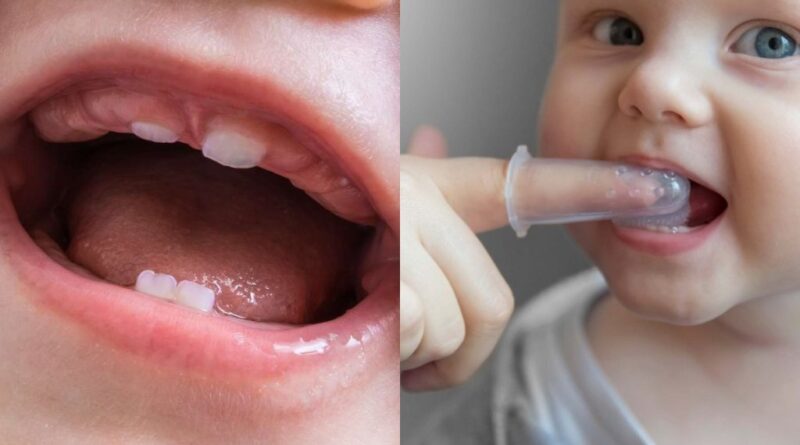Teething: Your baby’s first teeth
When do babies start teething? What are the signs that a baby is teething? Is it true that teething can cause fever, diarrhea or runny nose? How can I help my teething baby feel better? Is it safe to give pain medication to my baby? If you’re curious about the bets, keep reading…
When do babies start teething?
Babies erupt multiple first teeth at 6 to 10 months of age. If your baby’s teeth erupt early, he can remove his first tooth in a short period of 3 months. (Very rarely, a baby’s first tooth may appear at birth.) In other cases, you may have to wait until they are a year or older. Celebrate this milestone by taking pictures and jotting down the date in your child’s baby notebook when your baby’s first tooth appears.
Teeth actually begin to develop when your baby is in the womb, and tooth buds form on the gums. Teeth erupt within a few months and usually appear in the following order: first the two lower teeth in the middle, then the two middle teeth on the top, then the sides and back.
Teeth may come out one at a time or several at the same time. They may not all come at the same time, but don’t worry, they often get better with time.
The last teeth (the second molars at the back of the mouth, above and below) usually erupt around or shortly after your baby’s second birthday. By the age of 3, your child may have a full 20 milk teeth.
What are the signs that a baby is teething?
Some babies teethe without any symptoms, but many parents report their babies feeling some discomfort. Common teething symptoms include:
- Irritability
- Drooling (may cause facial flushing)
- swollen, sensitive gums
- gnaw or bite
- refuse to eat
- sleep problem
- rubbing face and ears
Is it correct that teething can cause fever, diarrhea, or runny nose?
Some parents say their baby has a fever, diarrhea or runny nose soon before a new tooth comes in, but there is no scientific proof that teething causes these symptoms. The American Academy of Pediatrics (AAP) says that while a baby’s body temperature may rise slightly during teething, true fever (above 38C) and diarrhea are not usual symptoms.
If your child has a fever along with other symptoms such as loss of appetite, vomiting, lethargy or diarrhea, call the doctor to check if there is anything more important.
How can I help my teething baby feel more competent?
- Give your child something to chew on, such as a hard rubber teething ring or a cold washcloth that you have chilled in the refrigerator (not the freezer). The AAP and the U.S. Food and Drug Administration (FDA) state that they are choking and suffocation hazards. use of teething necklacescounter-warning.
- You can gently but firmly rub your clean finger over your baby’s aching gums to temporarily relieve pain.
- Offer cold foods if your baby is old enough for solid foods. For example, she may get some relief from eating yogurt or chilled applesauce.
- If finger foods are big enough to eat, give your baby a frozen bagel or a hard, sugar-free teething biscuit to nibble on. Just keep an eye on it and be careful about choking.
Is it safe to give pain medication to my baby?
If your baby is at least 6 months old and nothing else is helping, your child’s doctor may recommend an infant pain reliever.




